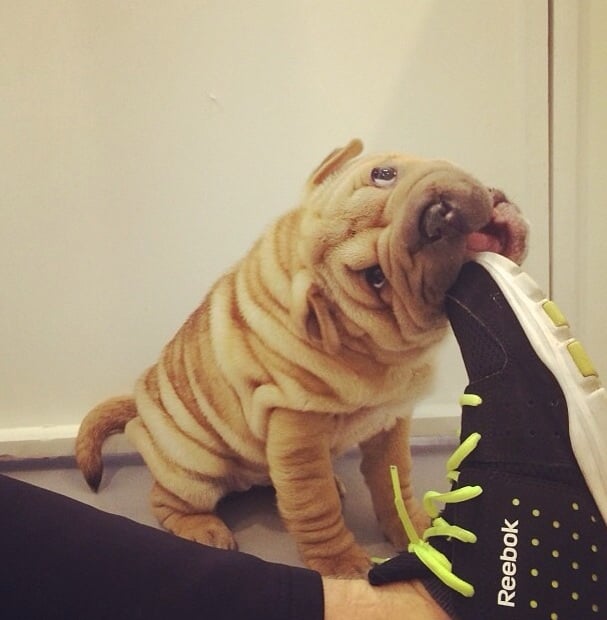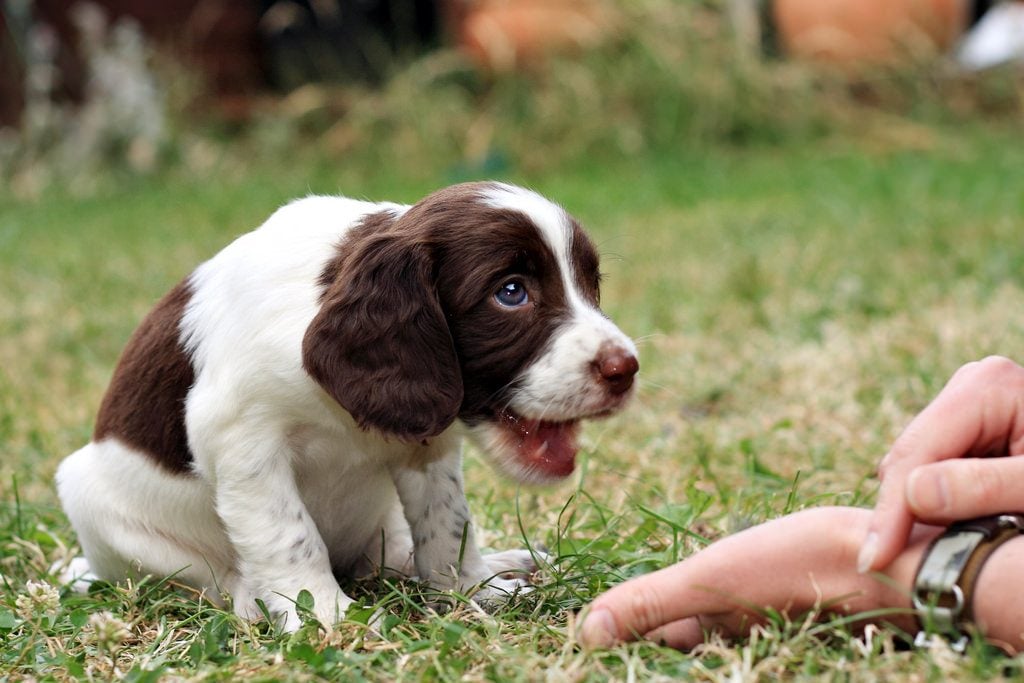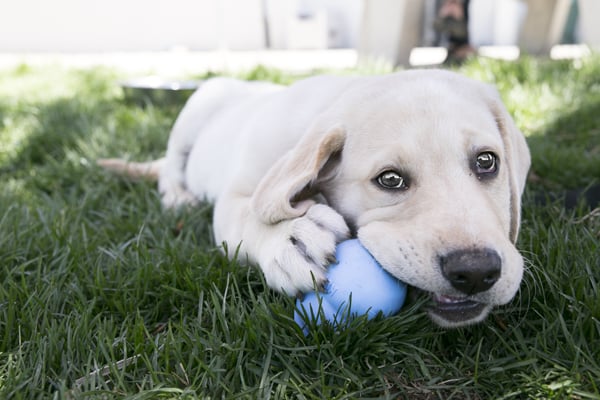- Not a substitute for professional veterinary help.
Before puppy class started one evening, Milo’s mum approached me, rolling up her sleeves. She held out her arms, which were covered in purple bruises and angry red bites. “I need help,” she whispered.
I sympathised with Milo’s mum. Puppies sure are cute, but they come equipped with some deadly features. Those teeth are built to break bone and rip flesh; no one told evolution that most dogs eat dry dog food.
Your puppy is born blind and deaf and will live up to two weeks in a dark, silent world before their ears and eyes open. This means that their first introduction to the world is through the mouth. It guides them to locate food and understand their surroundings. Even after their vision and hearing are gaining strength, puppies continue to rely on their mouths for information.
The mouth is, in many ways, the heart of a puppy. It brings them nourishment, new tastes and smells (dogs smell through both mouth and nose) and, as they become more sturdy on their paws, it plays a major role in socialisation and play behaviours with littermates. In other words, the mouth and its 28 needle-sharp baby teeth are essential to puppy development.
The problem is, those teeth hurt and, within months, those 28 little razors will become 42 big razors.
Puppy Biting: What Not to Do
The worst response a puppy parent can have to their baby’s mouthing and biting is to forcibly close the mouth. Holding the muzzle shut with hands or, god forbid, tying the jaws together is likely to backfire in two ways:
1) It may make puppy think you are playing and incite them to keep assaulting you with their mouth as part of their imagined game;
2) It will prevent puppy from understanding what it is about their mouth that is causing it to be held shut.
Your puppy probably does not have the life experience to understand yet that a mouth used for food, is not the same thing as a mouth used on toys, which is not the same thing as a mouth used on parents.
Training Your Puppy to Stop Biting
This doesn’t mean you have to sacrifice yourself to your puppy’s teeth. Try these tips to help teach your puppy to have an “educated” mouth.
First Step: Interruption
- If puppy’s mouthing becomes uncomfortable, inform them immediately by interrupting the behaviour. Say “OUCH!” in a high-pitched voice and remove your hands, arms, feet, or other body parts from their reach for about 15 seconds. Return to engaging with puppy. If they have calmed down, wonderful. If not, keep reading!
Second Step: Redirection
- If puppy begins to mouth you with too much pressure, grab the nearest toy and offer it to them. Really mouthy behaviour is acceptable only if it targets a more appropriate object.
Third Step: Walk Away
- If neither your “Ouch!” nor redirection worked to draw your puppy’s attention away from you, try removing what they perceive as the “reward” in the interaction: you!
- When puppy’s teeth begin to hurt (not before, soft mouthing is ok), inform them by saying “Ouch!”
- Immediately walk away from puppy and put some kind of barrier between you (walk into a nearby room and close the door, step over a baby gate, move behind a piece of furniture) for 15 to 30 seconds.
- Return when time is up and see if your puppy has calmed down enough to stop the mouthing behaviour.
Fourth Step: Removal
- If your “time out” didn’t work, Plan B is to stop engaging with puppy altogether. Immediately.
- Interrupt puppy again with your “Ouch!” and immediately walk away.
- Leave the room completely or put puppy in a confinement space. You aren not punishing your puppy with harsh words or actions, however. In fact, you may want to give them something constructive to do as you walk away like chewing on a dental chew or strong cuddly toy. By leaving, you are clearly communicating that too much mouthing results in the end of a game and the disappearance of a loved one.
- Return after your puppy has had ample time to calm down.
The Bottom Line
Be consistent with these methods over time. Education takes time, but if your response is consistent, it won’t take long before your puppy starts to catch on. And be sure to share your new approach with your pet sitter or dog walker so you’re all on the same page.
Further Reading
- New Puppy Parent? Here’s What to Expect in the First Six Months
- 50 Puppy Training Tips to Help You Stay Sane
- The First 5 Things to Teach Your New Puppy (and When to Start)
- Arousal Biting: How to Stop “Mouthing” Behaviour in Older Dogs
- 8 Best Cuddly Dog Toys That Your Dog Won’t Destroy Immediately
- How to Survive the First 24 Hours with Your New Puppy





